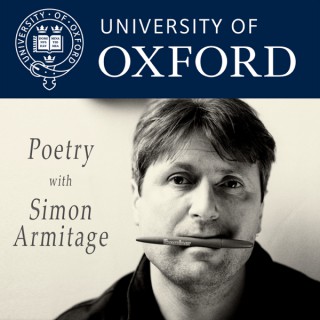Podcasts about 2018-05-17
- 6PODCASTS
- 6EPISODES
- 45mAVG DURATION
- ?INFREQUENT EPISODES
- Sep 20, 2018LATEST
POPULARITY
Latest podcast episodes about 2018-05-17
An Outdoor Pause: Skipping Stones, Splashes (and some tea to conclude)
Hinshelwood Lectures 2018 - Soft Interfaces: A Journey Across Scales
The 6th and final session of the Hinshelwood 2018 chemistry lecture series
Interview with Lord William Wallace
Lord William Wallace, member of the Parliament Choir, talks to Professor Kate McLoughlin about the centenary commemorations of the First World War.
The Gaisford Lecture 2018: The Greeks and a short long History of the Joke - Dr Nick Lowe
Gaisford Lecture 2018 The Gaisford Lecture 2018: The Greeks and a short long History of the Joke - Dr Nick Lowe
Thomas Aquinas on Bodily Identity
Book at Lunchtime, Thomas Aquinas on Bodily Identity Thomas Aquinas on Bodily Identity is a study of the union of matter and the soul in the human being in the thought of the Dominican Thomas Aquinas. At first glance this issue might appear arcane, but it was at the centre of polemic with heresy in the thirteenth century and at the centre of the development of medieval thought more broadly. The book argues that theological issues, especially the need for an identical body to be resurrected at the end of time, but also considerations about Christ's crucifixion and saints' relics, were central to Aquinas's account of how human beings are constituted. The book explores in particular how theological questions and concerns shaped Aquinas's thought on individuality and personal and bodily identity over time, his embryology and understanding of heredity, his work on nutrition and bodily growth, and his fundamental conception of matter itself. It demonstrates, up-close, how Aquinas used his peripatetic sources, Aristotle and (especially) Averroes, to frame and further his own thinking in these areas. The book also indicates how Aquinas's thought on bodily identity became pivotal to university debates and relations between the rival mendicant orders in the late thirteenth and early fourteenth centuries, and that quarrels surrounding these issues persisted into the fifteenth century.
Advancing the Rule of Law as part of the International Landscape
The 21st century has seen significant progress and recent regression in terms of entrenchment of the rule of law. These developments have occurred not only in the domestic context but also within the international sphere. This presentation by Kimberly Prost will explore some of these ‘rule of law’ changes and challenges within the international legal order. The establishment of the international tribunals and the International Criminal Court represents a landmark advancement in terms of international criminal law and international humanitarian law. It also has contributed to establishing a rule of law culture. The background which led to the creation of these bodies will be explored along with consideration of the fundamental concepts underpinning them and an examination of the current key challenges to maintaining and strengthening these institutions and international criminal justice more broadly. There will also be a brief reflection on ‘law making’ by the Security Council and whether this constitutes an appropriate role for the Council in terms of progressing the rule of law. In particular resolutions 827 (1993) and 955 (1994) which established the ICTY and the ICTR, resolution 1373 (2001) related to measures to counter terrorism and resolutions 2178 (2014) and 2396 (2017) on Foreign Terrorist Fighters will be considered. Finally the presentation will explore the role of the Ombudsperson for the Security Council Al-Qaida Sanctions Committee and consider its successes and failures in terms of enhancing the rule of law in Security Council practice.
Unseasonal Produce: Winter Words in Various Moods and Metres
Simon Armitage delivers the Trinity 2018 poetry lecture entitled "Unseasonal Produce: Winter Words in Various Moods and Metres".









